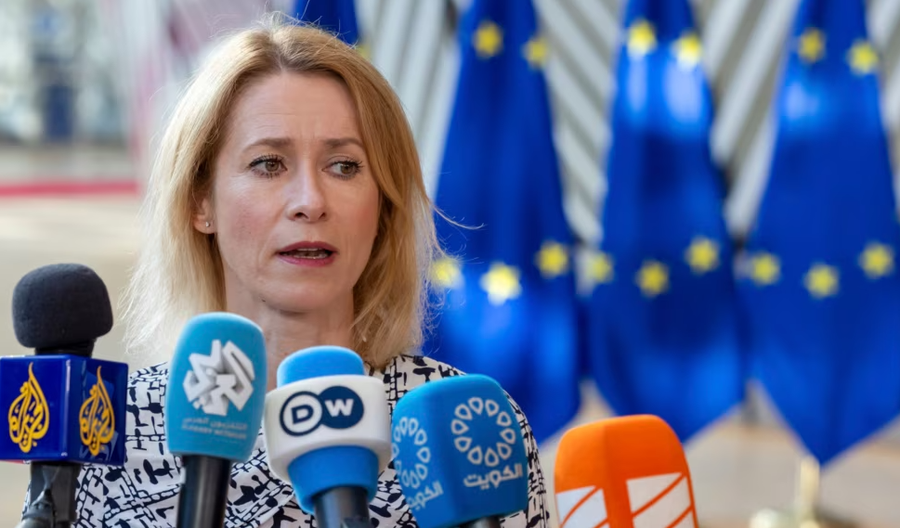
The European Union is seeking updates from Israel on the implementation of a new agreement to send humanitarian aid to the Gaza Strip, the bloc's foreign policy chief, Kaja Kallas, said on Tuesday.
The foreign ministers of the 27 EU member states are meeting in Brussels today, following a new agreement on aid to Gaza, which was largely reached by Kallas and Israeli Foreign Minister Gideon Saar.
Saar met with EU leaders on Monday after agreeing last week to allow essential food and fuel into the coastal enclave of 2.3 million people.
"We have reached a common understanding with Israel to really improve the situation on the ground, but it is not about the document, but about its implementation," Kallas said before the Foreign Affairs Council meeting.
"As long as the situation has not truly improved, then we have not done enough," she added, calling for a ceasefire.
The details of the agreement remain unclear, but EU officials have ruled out any cooperation with the Israeli-backed Gaza Humanitarian Fund due to ethical and security concerns.
Opening more border crossings and allowing more aid trucks to enter Gaza is a priority, but officials say they eventually want to establish an observation post at the Kerem Shalom border crossing.
European countries such as Ireland, the Netherlands and Spain are increasingly calling for a review of the EU's relations with Israel following the Gaza war.
A European Commission report found "indications" that Israel's actions in Gaza are violating human rights obligations included in the agreement governing relations with the EU, but the bloc is divided on how to act in the case.
Public pressure on Israel to act in Gaza made this new humanitarian agreement possible even without a ceasefire, said Dutch Foreign Minister Caspar Veldkamp.
"That strength of the 27 EU member states is what I want to preserve now," he said.
Spanish Foreign Minister Jose Manuel Albares Bueno said that the details of the agreement are still being discussed and that the EU will monitor the results to see if Israel is implementing the agreement.
"We don't know if we'll know how it works," he said. "It's very clear that this agreement is not the end. We have to stop the war."
The war in Gaza began after Hamas – the Palestinian group designated a terrorist organization by the US and EU – attacked Israel on October 7, 2023, killing around 1,200 people and taking 251 others hostage.
Most of the hostages have been released during previous ceasefires.
Since then, Israel's war in Gaza has killed more than 58,000 Palestinians, over half of them women and children, according to the Gaza Health Ministry.
The EU has seen some aid trucks enter Gaza, but "not enough," said Hajda Lahbib, the EU commissioner for humanitarian aid and crisis management.
"The situation is still very dangerous, very violent, with bombings continuing on the ground, so our humanitarian partners cannot operate. This is the reality, we need a ceasefire," she said./ REL (A2 Televizion)











